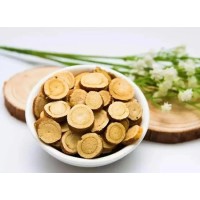Is licorice extract really effective in skin care products?
Licorice extract contains several active compounds, including glycyrrhizin, glabridin, and liquiritin. These compounds have been found to have anti-inflammatory and antioxidant properties.
Licorice extract has gained popularity in the skincare industry for its potential benefits. Derived from the root of the licorice plant, this extract is believed to possess properties that can improve the appearance of the skin. However, it is important to examine the scientific evidence behind these claims before drawing any conclusions.
Licorice extract contains several active compounds, including glycyrrhizin, glabridin, and liquiritin. These compounds have been found to have anti-inflammatory and antioxidant properties. Inflammation is a common cause of skin issues such as acne, eczema, and rosacea. By reducing inflammation, licorice extract may help alleviate these conditions and promote healthier skin.
Moreover, licorice extract glycyrrhizin acid has been shown to inhibit the production of melanin, the pigment responsible for skin darkening. This makes it a potential ingredient for treating hyperpigmentation and uneven skin tone. Additionally, licorice extract may have a brightening effect on the skin, giving it a more radiant appearance.

Research studies have provided some evidence supporting the effectiveness of licorice extract glycyrrhizin acid in skincare products. For example, a study published in the Journal of Dermatological Science found that a cream containing licorice extract reduced skin redness and improved barrier function in individuals with sensitive skin. Another study published in the Journal of Cosmetic Dermatology showed that a lotion containing licorice extract and niacinamide reduced hyperpigmentation and improved overall skin tone in participants.
However, it is important to note that while these studies suggest positive effects, more research is needed to confirm the efficacy of licorice extract in skincare products. The majority of studies conducted so far have been small-scale or conducted in vitro or on animals. Additionally, the concentration of licorice extract used in these studies varies, making it difficult to determine the optimal dosage for maximum benefits.
Furthermore, it is worth mentioning that licorice extract may not be suitable for everyone. Some individuals may be allergic or sensitive to this ingredient, which can lead to skin irritation or other adverse reactions. As with any new skincare product, it is recommended to perform a patch test before incorporating licorice extract into your routine.














